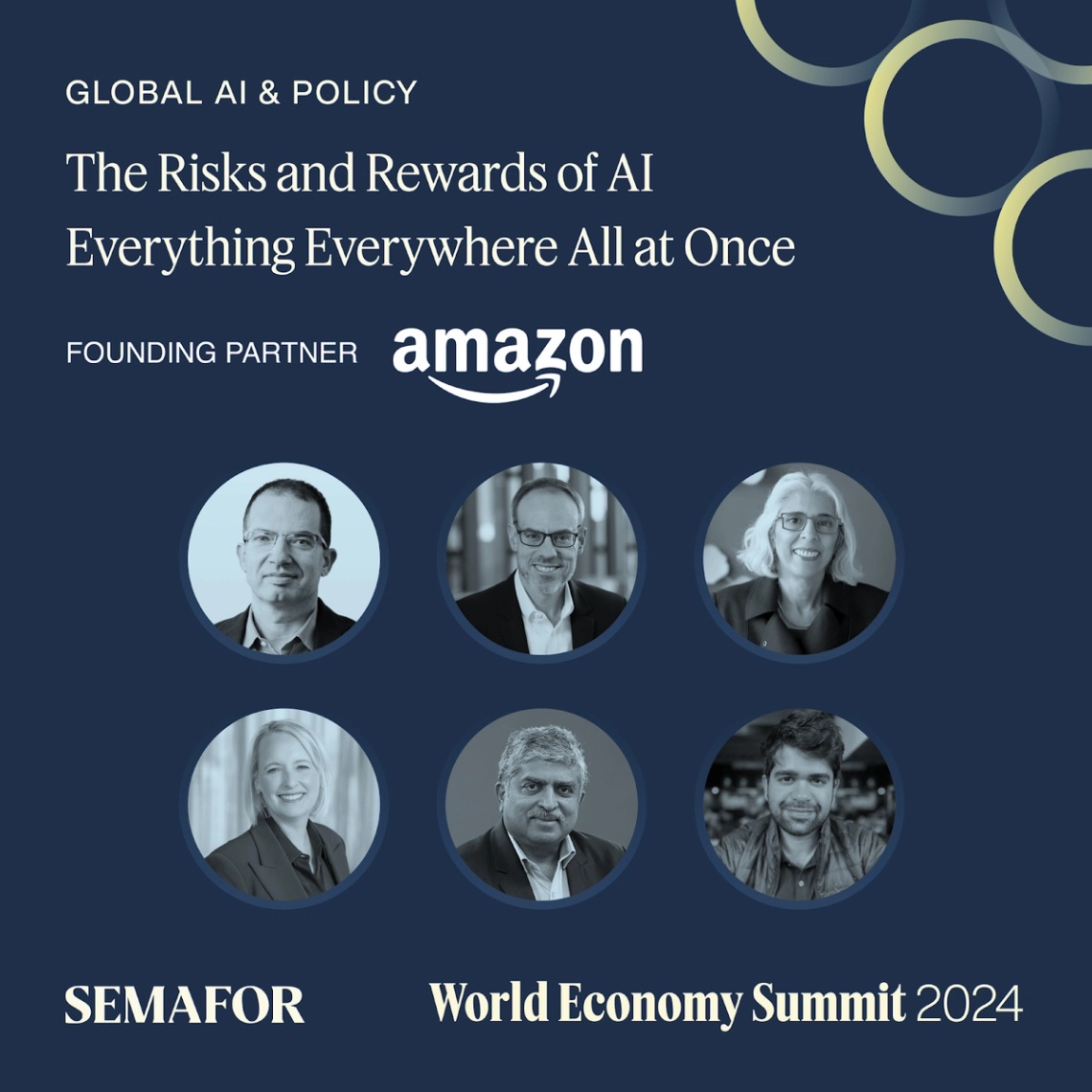 Stéphane Bancel, CEO, Moderna; David Zapolsky, Senior Vice President, Global Public Policy & General Counsel, Amazon; Arati Prabhakar, Director of the White House Office of Science and Technology Policy; Accenture Chair & CEO Julie Sweet, Co-Founder & Chairman of Infosys, Nandan Nilekani and Aravind Srinivas, Co-Founder, Perplexity AI will join the Global AI & Policy Session at the 2024 World Economy Summit to discuss the implications of AI in our everyday lives — from the way we learn, to how we work at the office or on the factory floor. Explore the latest in the AI revolution and the ways which companies are racing to take advantage of the technology, and what we can learn from past attempts to regulate tech. April 18 | 2:30 p.m.-5:30 p.m. ET | Washington, D.C. |